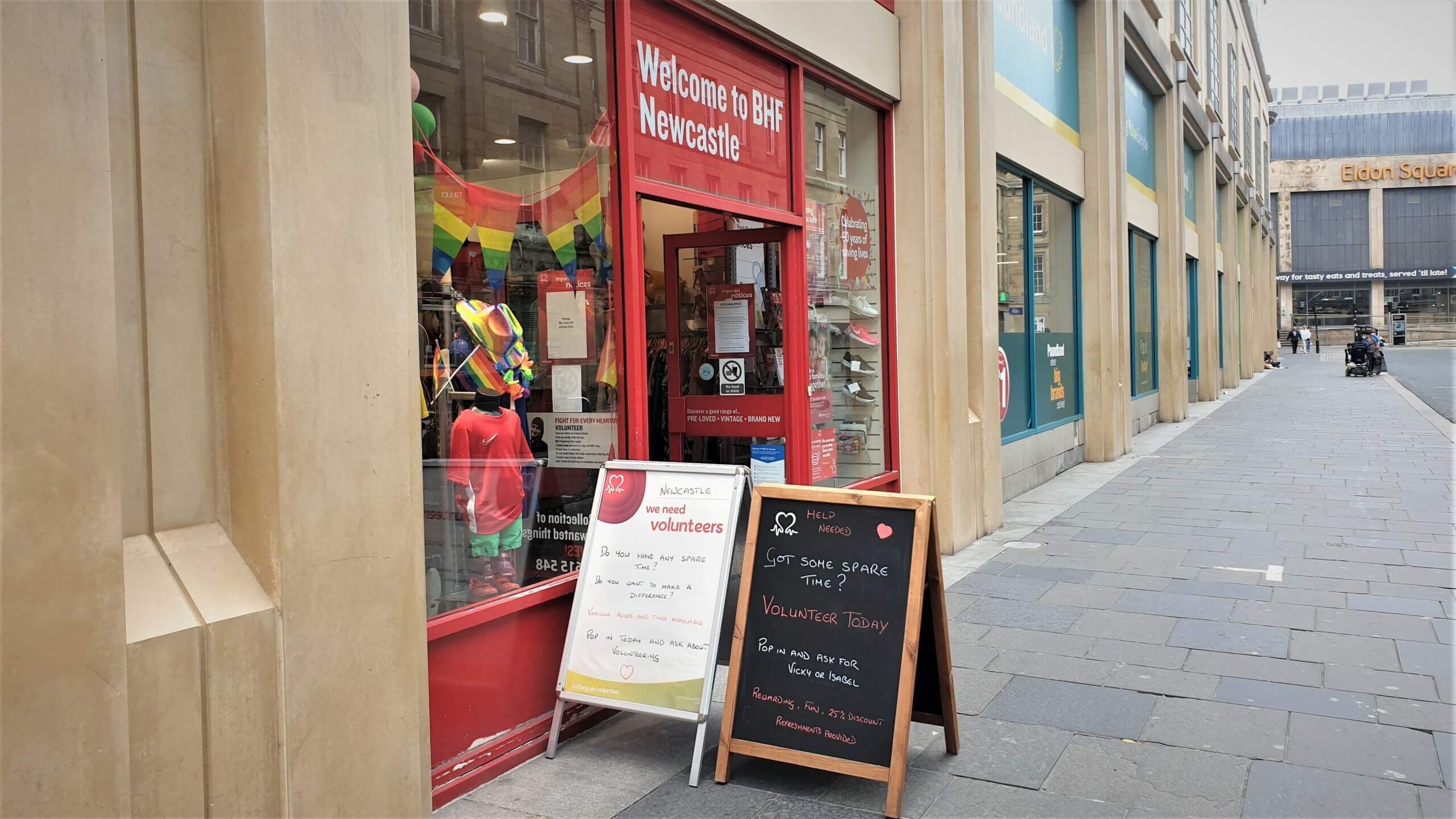The Freedom of Information Act was created to make public bodies such as councils transparent. The Government re-examined the Act following complaints it was draining resources. An independent FOI Commission concluded the Act did not place an unnecessary ‘burden’ on public authorities. With every penny counting, perhaps now is the right time to ask if the Commission’s decision was correct.
The Freedom of Information request is on its way to becoming a British institution in much the same way the British public loves to support the underdog. Discussions on the costs related to responding to the Freedom of Information (FOI) Act tend to generate strong emotions. For some, transparency and holding the establishment to account is worth nearly any price, while others view every pound spent as a pound taken away from the public purse.
One of these public bodies, councils, complain that the Act places an excessive ‘hardship’ on local authorities. They have protested about the cost of dealing with the requests, in particular those vexatious, frivolous or from organisations touting for business. The Government therefore set up an independent commission in 2015 to look at whether any amendments were required to the Act. The commission asked for responses to a handful of questions looking at the pros and cons of the Act.
Newcastle City Council were one of the public bodies who responded to the Commission’s questions. It complained that their FOI process was frequently being hijacked by questions relating to commercial interests. The example they gave was of a request made to provide all software packages used by the council in an attempt to further the requestor’s commercial interests. The council stated: “The volume of requests is a burden on local authorities. Based on the figures used within the consultation of an average of 7.5 hours per request, and the volume of FOI requests dealt with by NCC for the financial year 2014/15 of 1312, an estimated £246,000 was spent by NCC in answering FOI questions based on the statutory amount of £25 per hour.”
Data received from four North East councils under an FOI request shows that this sum increased to £258,000 for Newcastle in 2016. The council completed 79 per cent of its FOI requests within the statutory time limit, a fall of 12 per cent between 2014 and 2016. This fall is despite the number of requests received by the council only increasing by 45.
All four of the councils that responded showed an increase in the cost of implementing the requests between 2015 and 2016. Sunderland Council was shown to have spent the most processing FOI requests in 2016 where an estimated £266,438 was spent completing 1421 requests. Data received from Darlington Borough Council indicates that in each of the years 2014, 2015 and 2016 they failed to complete a third of their FOI requests within the 20 day time limit. Middlesbrough Council were shown to have an 80 per cent increase in their FOI costs between 2014 and 2016. Where in 2016 more than 6,276 hours were spent completing FOI requests by council officers, costing the council an estimated £157,000.
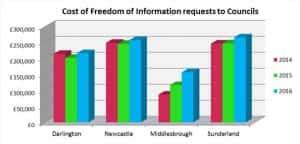
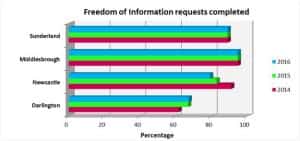
We asked the four councils for a response to the pressures FOI requests were placing on them. Middlesbrough were the only council to respond where a spokesperson stated: “The increase in the volume of freedom of information requests coupled with reduced resources places increasing pressure on the organisation to respond to requesters in a timely manner. Increased investment in Open Data technologies would assist in streamlining responses, reducing this pressure.”
It was feared by many FOI supporters that the Commission would make suggestions to change elements of the Act in their finding in 2016. These fears involved either cutting back the time limit for responses to be completed or levying a charge for each request. The Commission received over 30,000 responses, 172 from organisations of which 74 were from public sector representatives, including the NHS, police and local authorities. They received 693 individual responses from those categorised by the commission as users of the Act. There were 29,334 responses from individuals taking part in the 38 degrees campaign “Save the FOI” and 744 from Liberty’s email campaign, both who overwhelmingly argued to preserve the Act as it was. For the purpose of a visual representation of the commissions numerical data Chart 1 was created. Given that the 38 degrees and Liberty campaigns alone were against any change meant more than 97 per cent of those who responded were in favour of the Act remaining unchanged (see Chart 2).
Chart 1
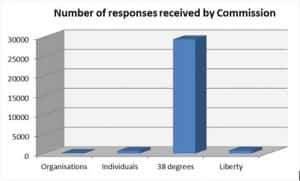
Independent Commission on Freedom of Information report data 2016
Chart 2
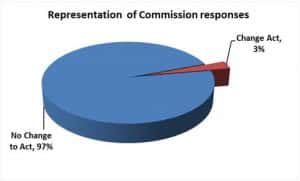
The independent commission concluded that no major changes would be made to the Act. Cabinet Office minister Matthew Hancock, who established the commission, stated: “We will spread transparency throughout public services, making sure all public bodies routinely publish details of senior pay and perks. After all, taxpayers should know if their money is funding a company car or a big pay off.”
Newcastle City Council, meanwhile, has published information on their future budget where they blame imposed government cuts for having to make £30m savings next year and a total of £70m by 2020. This comes on top of £221m they state they have already had to save over the past six years.
Sobering reading for Newcastle taxpayers – some of whom might be thinking money spent on an FOI request does not help an elderly person out of bed, repair a road or transport a vulnerable child across the city. At a time when public sector budgets are being cut year after year, it can be hard to defend the added cost of freedom of information. Many claim the time and money could be put to better use, especially when frontline services are being continually cut back.
However, this has to be balanced against the FOI requests that have uncovered alleged wrongdoing. The Evening Chronicle used an FOI request to accuse Newcastle City Council of wasting public money by giving away eight pieces of land at an estimated cost of thousands. In March last year, the BBC used an FOI request to uncover that a bus lane camera on John Dobson street in Newcastle was earning the council almost £6,000 a day.
Councils may see it as a waste but, as we approach the Act’s thirteenth anniversary, public mistrust still prevails and forced accountability is still required – together with the belief that the scrutiny the FOI Act brings can drive local government to greater efficiencies.

